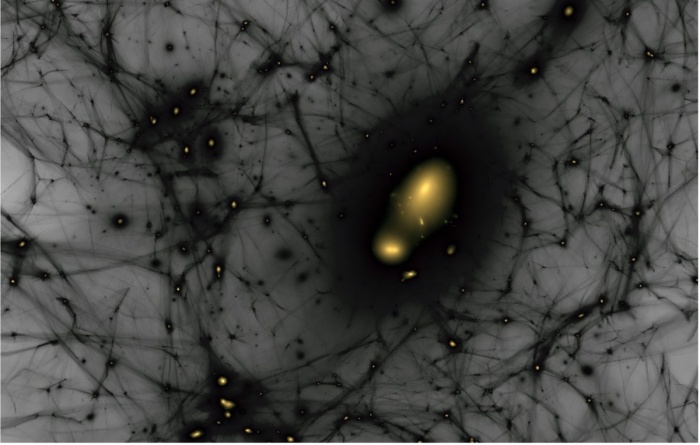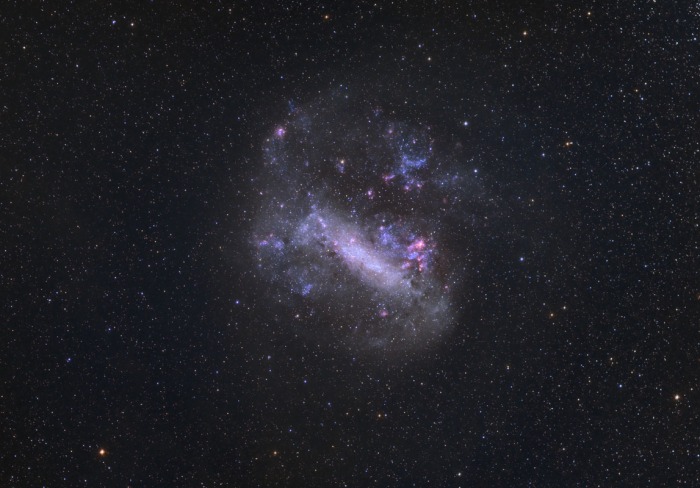A galaxy without dark matter has come to light in the constellation Perseus. Find out why this poses a puzzle for astronomers and challenges cosmology's explanation of how our universe began.
Tag: Dark Matter
Euclid Space Telescope Will Explore Dark Energy
The Euclid Space Telescope’s mission is to explore the composition and evolution of dark energy. Find out how its observations of over a billion galaxies aim to solve what scientists call cosmology’s greatest mystery.
Dwarf Galaxies Contradict Dark Matter Paradigm
Dwarf galaxies contain less than ten percent of the stars in the Milky Way. Find out how their behaviour in a region called the Fomax Cluster challenges dark matter's existence.
Galaxies Without Dark Matter Might Form From Collisions
Galaxies without dark matter are rare and were once thought impossible. Find out how a new hypothesis about their formation may explain how all galaxies form and what dark matter is.
Dark Energy: Dark Matter Magnetism?
Dark energy is a hypothetical force that scientists rely on to explain why the Universe expands at an accelerating rate. Discover how a new theory challenges dark matter’s existence based on magnetism. (4:30 min read)
Gravitomagnetism: Does It Explain Away Dark Matter?
Gravitomagnetism is the energy created by spinning objects in the fabric of spacetime. Discover why it may explain away the mysterious Dark Matter for which scientists have been searching unsuccessfully. (4:30 min read)
Last Journey Simulation Follows Matter Through Universe
The Last Journey Simulation used Mira, one of the world’s most powerful supercomputers, to model how mass flows through our Universe. Discover how it breaks ground for future cosmological studies.(4:00 min read)
Mass Discrepancy: Is Dark Matter Hiding in Plain Sight?
The mass discrepancy drives the search for dark matter. Find out how a new approach could solve this riddle. (4:30 read time)
Can Faint Satellite Galaxies Solve Dark Matter Mystery?
We may have 150 faint satellite galaxies orbiting the Milky Way. Find out how this could help explain the mystery of dark matter in the universe. (4:00 min read)
“Missing Matter” Missing in 19 Dwarf Galaxies
Scientists from the Chinese Academy of Sciences have identified 19 dwarf galaxies that appear to contain none of cosmology's mysterious dark matter. Learn why this challenges the conventional wisdom about the workings of our universe. (4:00 min read)










